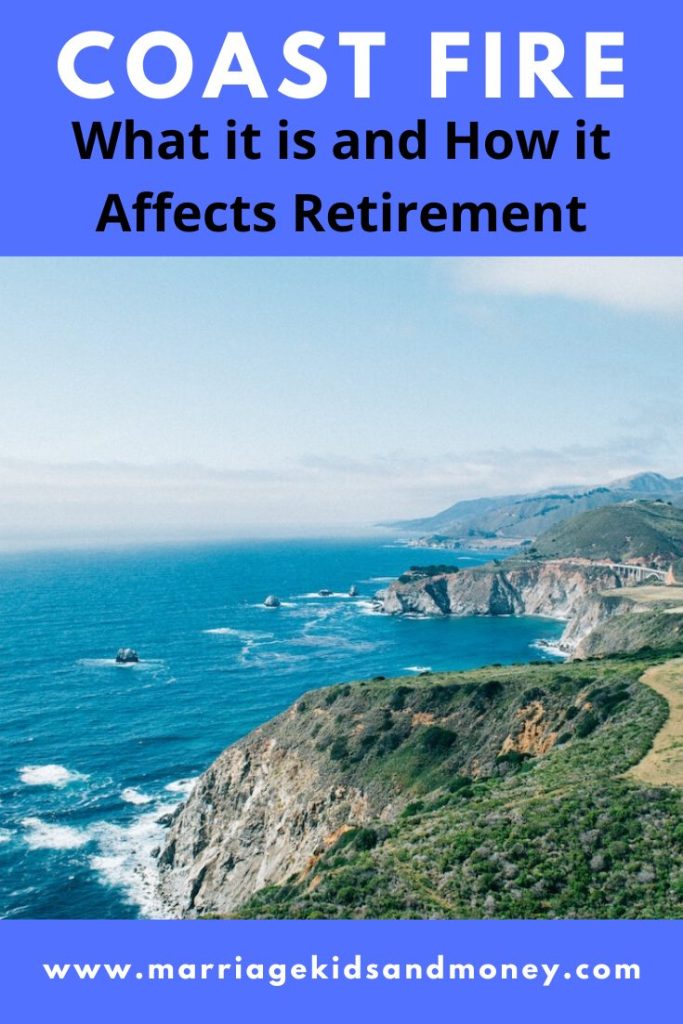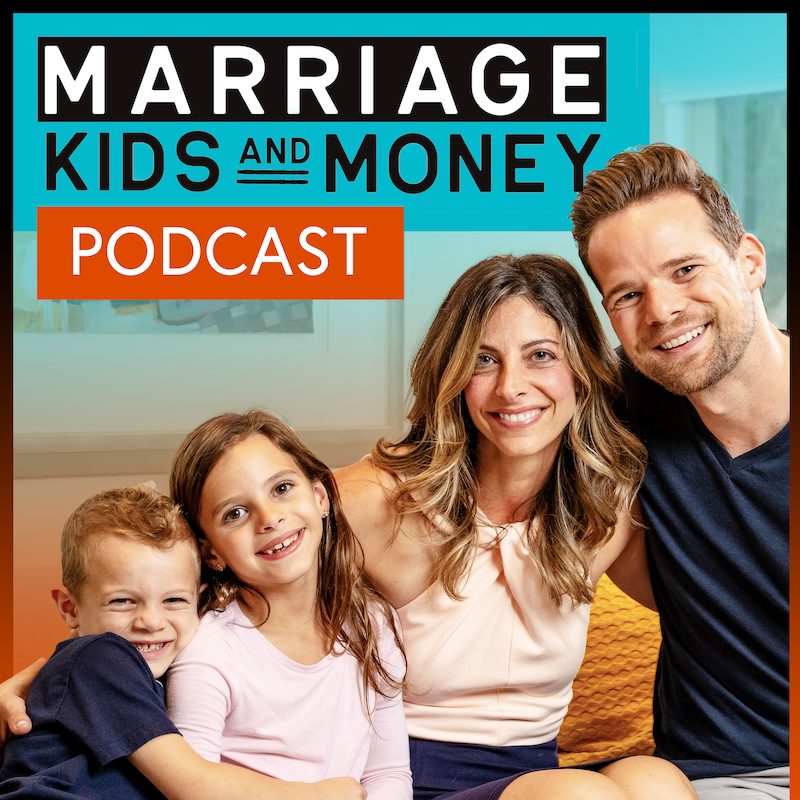We’ve all been told that money doesn’t buy happiness, but there’s no denying that it affords us time and freedom. Whether you are well on your way to financial independence or just learning the very basics, there’s a good chance you will come across the FIRE movement. This community of people strives to reach financial independence to allow themselves to retire early if they choose. Now, there’s a growing subset of the movement called Coast FIRE.
Some people fall head over heels with the FIRE movement once they find it. However, other people find it overwhelming. It can be intimidating to hear people’s stories of reaching millionaire or even multi-millionaire status in their 30s, allowing them to leave the traditional workforce. That’s where Coast FIRE comes in.
Let’s explore what it is and how it can shape your retirement planning.
What is Coast FIRE?
As with most things in the FIRE movement, the definition of Coast FIRE depends on who you ask. No matter how it's defined, know that it is part of your pathway to financial independence.
Coasting Around High-Stress Trajectories
Sam Dogen of Financial Samurai sees Coast FIRE as a subset of the FIRE movement. He views someone as Coast FIRE if they are almost completely financially independent but still needs a job to feel comfortable living the FIRE lifestyle.
For example, someone who has $40,000 a year in expenses and has passive income that generates approximately $20,000 a year needs to close the gap. To do that, they work a job that allows them to live a Coast FIRE lifestyle.
Rather than focusing on climbing the corporate ladder or working 60-plus hours per week, someone living a Coast FIRE lifestyle has the ability to choose a job that suits their interests. They may also be able to choose a career path that isn’t as high stress. Sam says this person is still doing their work and enjoying their job, but they coast through some of that stress that someone might experience working at a more frenetic pace.
Start and Stop Investing for Retirement Sooner
Jessica from The Fioneers defines Coast FIRE slightly differently. According to her, someone who is Coast FIRE has enough money in their investments now that they could retire comfortably at a traditional retirement age. Rather than focusing on generating income to put toward retirement, someone who is Coast FIRE is working to cover their living costs now until retirement.
Because someone who is Coast FIRE knows that they have already addressed their retirement concerns. That means that they can cut back or stop investing for retirement sooner. They can also reduce their hours at work, change career paths, or take other creative approaches to generate income now.
How Coast FIRE Affects Retirement Planning

Pursuing Coast FIRE can shape your retirement planning in a variety of ways. Most importantly, it should keep retirement planning top-of-mind even when you’re young. One of the regrets that seasoned investors share most often is not starting soon enough. The earlier you start investing, the more time your money can grow in the market.
Additionally, pursuing a Coast FIRE lifestyle can also encourage more strategic financial planning. Sam Dogen says there are three steps people can use to test their current financial path.
- Analyze your existing expenses to see what you’re spending.
- Audit your income to see where your money is coming from.
- Then, tackle any low-hanging fruit that might help you decrease your expenses or increase your income.
By using these steps, you can open up more room in your budget to allocate toward retirement savings and investments.
Why Coast FIRE Works Well for the Young Investor
Coast FIRE is a goal well suited to young investors. People who are just starting out in their careers will typically see greater income growth later on. That means that some of the standout FIRE success stories of saving six-figures in a single year simply aren’t possible. Coast FIRE, though, is certainly always on the table.
Another reason why Coast FIRE is an important aspiration for young investors is that it sets them on the path for success. Sam Dogan paraphrases a Chinese proverb by saying that if someone is headed in the right direction, they will get there sooner or later. Embracing a Coast FIRE lifestyle affords people flexibility around when and how aggressively they want to save.
An additional component of Coast FIRE is the overlap between side hustles and entrepreneurship. Some millennials feel drawn to these lifestyles, while others feel forced into them. Because many people who reach Coast FIRE incorporate side gigs or entrepreneurship into the financial plans, young people can capitalize on skill sets they are already developing.
The biggest reason that Coast FIRE works for young people is that it allows compounding to work in their favor. It also affords you more flexibility. That means that you can dodge burnout. All the while, you can still build a comfortable nest egg and grow your net worth. In fact, many early retirees like Mr. Shirts at Stop Ironing Shirts say that they regret not pursuing Coast FIRE when they were younger.
Am I Coast FIRE?

If Coast FIRE sounds appealing, one question you’re probably wondering is, “How do I know when I’ve reached Coast FIRE?” To get a sense of where you stand financially, you will want to analyze three aspects of your finances.
What is your income?
The first data point means uncovering all of your income. That might be money from a day job. But it could also include side gigs, seasonal work, or anything else that boosts your bank account. Knowing the amount of money you make is an important starting point. It is also important to look at your budget and track your spending. You can't save what you don't keep.
What is your current investment status?
The next data you need to collect involves your current investment accounts. People often use the words save and invest interchangeably. In this case, you want to look at all of your retirement accounts and make sure that the money within the accounts is invested. It is possible to open a retirement account and leave the funds sitting in cash. If you find that to be true in your case, make a note of it as well.
How much do you expect to spend in retirement?
While this might seem like something that requires a crystal ball, it's an important data point. You want to have a guestimate of how much money you think you'll spend each year in retirement. A good starting point is to calculate your current monthly expenses and adjust from there.
What is a Coast FIRE formula?
In addition to looking at your income, your investments, and your projected spending, you want to do some number crunching to see where you stand.
Two of our favorite Coast FIRE resources are from people in the personal finance community.
- The Fioneers offer a FI milestones template using their definition of Coast FIRE on their site.
- You can also check out the graphs and test out the Coast FIRE formula on the Four Pillar Freedom site for more insight into your Coast FIRE status.
Tax-Advantaged Vehicles to Help Me Coast FIRE

There is no one-size-fits-all path to financial independence. Coast FIRE is no different. Still, there are several tax-advantages vehicles that might help you hit your financial independence goals faster.
Grab Your Company Match
Start with the retirement planning basics. If you work for a company that offers a 401k or 403b company match, you want to make that your first priority. Basically, a match means that your company agrees to put in a certain amount of money into your retirement account that mirrors, or matches, your contribution. A company match might be $1,000, which means your first goal would be to contribute $1,000 of your own money to get the company match.
Consider a Roth IRA
A Roth IRA is a key component to many people’s financial independence planning. An individual retirement account exists outside of your workplace. That means that you–the individual–oftentimes have a lot more control over how this money gets invested.
For many individuals, a Roth IRA account is a stepping stone to financial independence.
Max Out Your 401k
Once you have maxed out your Roth IRA contribution, you can continue to work on your 401k or 403b. Maxing out any account is a big feat and requires considerable income and savings. If you can’t do it all in the first year or even the first five years of your pursuit of financial independence, that’s OK. The main goal is to grow the gap between your income and your expenses so that you can continue to save and invest.
Look into an HSA
Some people also have the opportunity to put money into a Health Savings Account, or HSA. If you have a high-deductible health plan (HDHP), you are probably eligible for an HSA. This account is used to pay for health care costs with tax-advantaged money.
Sometimes, HSAs are partially funded by your employer. In that case, they use pre-tax dollars. If you fund your HSA yourself, you can make a tax deduction at tax time. Additionally, the money in the account grows tax-free. Plus, it can be withdrawn tax-free to cover eligible expenses. Because it is triple tax advantaged, many people in the personal finance community consider it an essential retirement account.
Lively is a great partner to consider for your HSA needs.
Open a Taxable Account
Unlike the above accounts that all come with hefty penalties if you don’t follow the withdrawal requirements properly, a taxable brokerage account is much more flexible. In fact, one of the biggest benefits of a taxable account is that you can tap your money whenever you want it. There is no penalty for pulling money out before retirement age.
Another benefit is that you have freedom to invest in whatever you wish. Though many people pursuing financial independence will argue that index funds are key.
Explore Real Estate
Another option for people who have already maxed out their tax-advantaged accounts is to look into real estate investing. Real estate investing exists on a spectrum from more passive to very active. That means that someone might be more comfortable investing in REITs or syndications, while other people might be interested in becoming landlords or doing live-in flips.
For people interested in owning physical rental properties, but not doing the landlord thing … check out Roofstock.
Is Coast FIRE Right for Me?
The most important rule of personal finance is that it is all personal.
Coast FIRE might be really appealing and motivating to some people. Other people might prefer a more aggressive approach to FIRE. And for some people, the FIRE movement isn't for them.
While you can certainly adjust your plans as you go, the important thing is to get started. After all, Coast FIRE might just show you that you can stop investing for retirement sooner than you think.
What do you think of Coast FIRE?
Please let me know in the comments below.

LISTEN AND SUBSCRIBE ON:
recommended tools
Personal Capital: Track your net worth, investments and budget for free. Receive a $20 Amazon gift card for signing up.
MKM PODCAST RESOURCES
Thriving Families Facebook Group: Join our new FREE Facebook Community!
CARPE DIEM QUOTE
“It takes as much energy to wish as it does to plan.”
Eleanor Roosevelt



2 Comments
I love the Coast FIRE concept. My wife and I are “accidentally” near Coast FIRE. We had just set out to save aggressively early in our careers, even before discovering the world of FIRE, personal finance, and the concepts around reducing work early in our careers. The challenge for us (ok, for me) is being able to pull the “save less” trigger for things like working less, pursuing my side gig, or working less at our primary jobs. As of now, we haven’t scaled back our savings while we are both working as much as we are. The two of us have actually discussed our personal Coast FI journey here on the Your Financial Pharmacist Podcast.
I think it’s a great balance between the traditional grind it out til your 65 retirement plan and the burn yourself out hard for 10 ish years traditional FIRE plan. Had we discovered FIRE earlier in our careers, we may be telling a different story, but at this point, Coast FI is a happy middle ground that helps us sleep easy at night knowing we have our retirement pretttty much saved for if we have something that would have us saving less.
I love hearing more about this “Coast FI movement”! It makes so much sense. Too much of anything can be bad.
Words and concepts like Coast FI and Semi-Retirement are music to my ears!